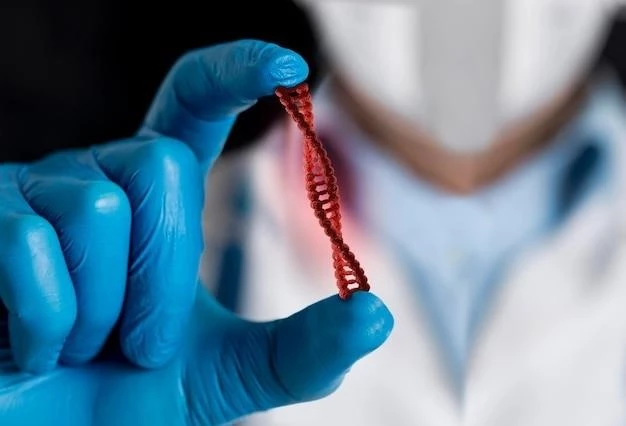Overview of Carnitine Palmitoyltransferase II Deficiency
When exploring Carnitine Palmitoyltransferase II Deficiency, it’s crucial to grasp the Symptoms and Clinical Manifestations, get insights on Diagnosis and Genetic Testing, understand Management and Treatment, consider Dietary factors, review Prognosis and Outlook, explore Research Advances, and access Support and Resources.
Symptoms and Clinical Manifestations of Carnitine Palmitoyltransferase II Deficiency
Carnitine Palmitoyltransferase II Deficiency can manifest in various ways. Common symptoms include muscle weakness, low energy levels, liver problems, and in severe cases, cardiac complications. Individuals may experience fatigue, muscle pain, and difficulty with physical activities. Seek medical advice promptly if you or a loved one show signs of these symptoms.
Diagnosis and Genetic Testing for Carnitine Palmitoyltransferase II Deficiency

Diagnosing Carnitine Palmitoyltransferase II Deficiency typically involves blood tests to measure enzyme levels and genetic testing to identify mutations in the CPT2 gene. A muscle biopsy or imaging studies may also aid in diagnosis. Consult with a genetic counselor to understand your testing options and implications. Genetic testing can provide valuable insights for accurate diagnosis and proper management.
Management and Treatment of Carnitine Palmitoyltransferase II Deficiency
Managing Carnitine Palmitoyltransferase II Deficiency involves a multidisciplinary approach. Treatment aims to prevent symptoms and complications by avoiding fasting, maintaining a balanced diet, and staying hydrated. Regular physical activity tailored to individual abilities is crucial. Medications and dietary supplements may be prescribed based on specific needs. It’s important to work closely with healthcare providers, including specialists in genetics, metabolism, and nutrition, to create a comprehensive management plan to optimize health and well-being.
Dietary Considerations for Carnitine Palmitoyltransferase II Deficiency
For individuals with Carnitine Palmitoyltransferase II Deficiency, dietary management plays a crucial role. A balanced diet rich in complex carbohydrates and adequate protein is recommended to meet energy needs and support muscle function. It’s essential to avoid fasting and consume frequent meals/snacks to maintain blood glucose levels. Limiting intake of fats, especially long-chain fatty acids, can help reduce the risk of metabolic complications. Consulting with a registered dietitian experienced in metabolic disorders is advised to create a personalized nutrition plan that meets individual requirements.
Long-term Prognosis and Outlook for Carnitine Palmitoyltransferase II Deficiency
Understanding the long-term prognosis of Carnitine Palmitoyltransferase II Deficiency is crucial for individuals and their families. With proper management, including dietary adjustments, regular medical follow-ups, and lifestyle modifications, many individuals can lead healthy and fulfilling lives. However, the severity of symptoms and complications can vary widely among affected individuals. It’s important to collaborate closely with healthcare providers to monitor and address any changes in symptoms or health status promptly. By staying informed, proactive, and adhering to recommended care plans, individuals with Carnitine Palmitoyltransferase II Deficiency can optimize their long-term outlook.
Research Advances in Carnitine Palmitoyltransferase II Deficiency
Recent research developments in Carnitine Palmitoyltransferase II Deficiency have brought about significant progress in understanding the condition. Studies have focused on uncovering new treatment approaches, improving diagnostic methods, and exploring potential genetic therapies; Advances in gene therapy and enzyme replacement strategies offer promising options for the future management of this inherited metabolic disorder. Participating in clinical trials, staying informed about emerging research, and collaborating with medical professionals are essential for individuals and families affected by Carnitine Palmitoyltransferase II Deficiency to access cutting-edge treatments and contribute to the advancement of knowledge in the field.
Support and Resources for Individuals with Carnitine Palmitoyltransferase II Deficiency
For individuals living with Carnitine Palmitoyltransferase II Deficiency, accessing support and resources is essential for managing the condition effectively. Connecting with patient advocacy groups, such as the CPT2 Family Network, can provide valuable information, emotional support, and opportunities to interact with others facing similar challenges. Seek out specialized medical centers with experience in treating metabolic disorders for comprehensive care; Genetic counselors can offer guidance on family planning and understanding inheritance patterns. It’s important to stay proactive, educated, and engaged in your healthcare journey while leveraging available resources to enhance your quality of life.
